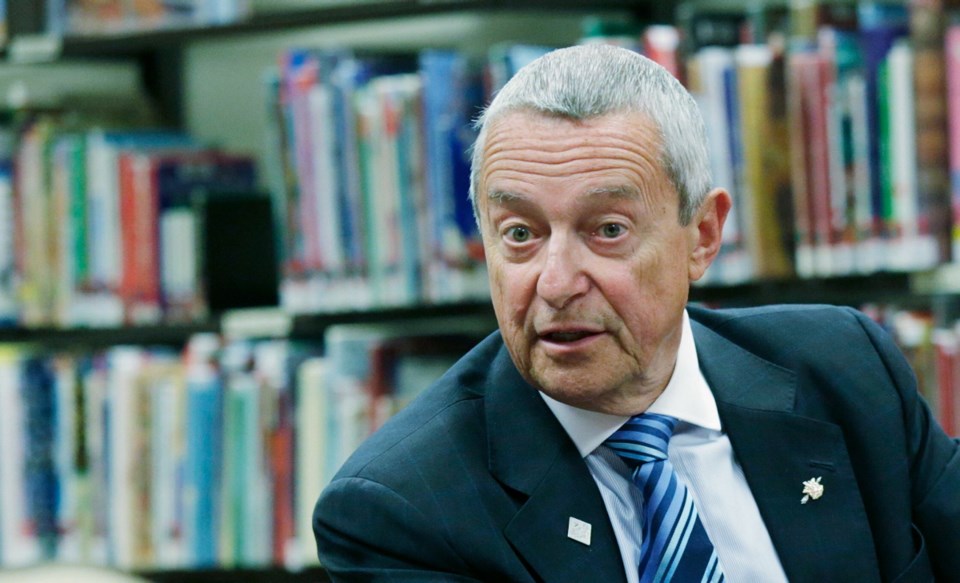 The political aspect to this week’s Supreme Court decision on the B.C. Teachers Federation case is pretty clear.
The political aspect to this week’s Supreme Court decision on the B.C. Teachers Federation case is pretty clear.
It’s one of the most severe findings a court has issued about government conduct in years. The B.C. Liberals have been thrown for a big loss on the education front.
Justice Susan Griffin declared the government deliberately tried to secretly provoke a strike by the BCTF in 2012 to create a political advantage.
Low-grade BCTF job action that year was frustrating everyone. The government wanted to bring it to an end, by forcing the union’s hand. When the full school shutdown that the B.C. Liberals wanted didn’t happen, they increased the pressure on the union “so as to provoke a strike.” Why?
The judge said it was because it was so important to the government strategy, which was to win support for imposing legislation on teachers who were withdrawing some services on a kind of work-to-rule campaign.
There are no rhetorical denunciations in the judgment. The findings speak for themselves.
She ordered the government to pay the union $2 million for bad faith. Trust me, it got off easy.
It’s the practical effect of the decision that’s not yet clear. It appears to send the education system back to 2002, when class-size limits and strict formulas for teacher-librarians, specialists and requirements about class composition were all in the contract.
As the judgment states: “When legislation is struck down as unconstitutional, it means it was never valid, from the date of its enactment. This means that the legislatively deleted terms ... have been restored retroactively and can also be the subject of future bargaining.”
Backing up 12 years to run the system under the old rules is even more complicated than it sounds. Hundreds of those specialist jobs vanished through attrition over the years. Some improvements were made through a learning improvement fund that injected millions of new dollars into the system.
But the net effect is that many of the staffing requirements in the old contract went by the wayside years ago. And shrinking enrolment can’t be blamed for all the net loss.
Now, the law is laid down. For the second time, the government’s approach to teacher bargaining has been ruled unconstitutional.
So the 2002 contract is back in force, and the government and school districts are obviously not playing by those rules.
It’s technically conceivable that teachers could file grievances by the thousands, because their 2014 working conditions don’t meet the 2002 contract standards. Nor did conditions from 2002 through to 2014.
The government warned the court that could cost up to $500 million retroactively, and up to $275 million a year going forward, although the judge found those estimates “highly speculative.”
The decision recommends that both sides get down to bargaining a way out of this mess.
“The thrust of the evidence makes it clear that it will be in the interests of the BCTF and the [employer] to negotiate an overall resolution to these claims through bargaining.”
Budget pressures mean the B.C. Liberals are as miserly today as they were in 2002 when they stripped all the expensive requirements out of the contract, and in 2012, when they tried the same thing. So bargaining when they have just been put in a remarkably weak position isn’t very attractive at this point. Education Minister Peter Fassbender on Monday was so flummoxed by the decision he couldn’t directly answer any questions about it.
Premier Christy Clark said Tuesday there’s the “likelihood” of an appeal. That would buy some time while they wait for Supreme Court of Canada decisions that might have some impact on this case. But it’s hard to picture them making any progress on the current round of negotiations with an appeal in the works.
They’ve been called out by a judge for playing cynical political games with the school system, and they’d be running back to court with two strikes against them.
Just So You Know: Clark’s big new idea in education for the past year has been a long-term deal with teachers. In an odd sort of way, the judgment could eventually create just that. Only it will run backward — all the way to 2002.



